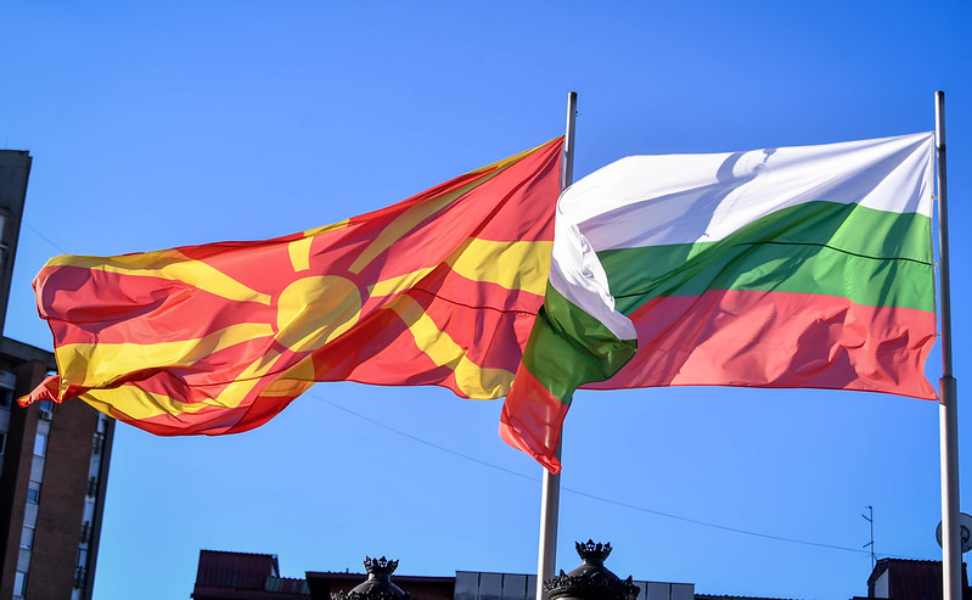Bulgaria has an obligation to protect the rights of the Macedonian minority

The UN Human Rights Office calls on the Bulgarian government to ensure and protect the rights guaranteed in the country's constitutional provisions to respect the right to ethnic self-determination, including the rights to freedom of expression and freedom of association of members of the Macedonian minority.
The United Nations (UN), through its respective offices, monitors whether the rights of minorities are respected in Bulgaria and reminds it that it has an obligation to respect the international agreements for the protection of human rights and against discrimination that it has signed.
The UN Human Rights Office says that Bulgaria has an obligation to respect the rights of minorities and to ensure that no one is discriminated against on the basis of their freely chosen identity, writes "Voice of America", from where they asked for a comment about with Bulgaria's condition for the inclusion of Bulgarians in the Macedonian Constitution, while there are 14 judgments against it by the International Court in Strasbourg for violating the rights of the Macedonian minority on its territory.
The UN has been demanding rights for Macedonians for a long time, Sofia is not listening
The UN Human Rights Office says that the rights of minorities around the world are protected by various treaties, including the International Covenant on Civil and Political Rights and the International Convention on the Elimination of All Forms of Racial Discrimination, and Bulgaria, as a signatory to both treaties, must also respect their obligations.
"National law should recognize the rights of minorities and ensure that no individual or group suffers disadvantage or discriminatory treatment on the basis of their freely chosen identity as belonging (or not) to an ethnic, religious, linguistic or any other group", says the response from the UN.
The Office emphasizes that Bulgaria's fulfillment of such obligations is monitored by the Human Rights Committee and the Committee for the Elimination of Racial Discrimination. The UN points to the report that an independent expert on minority issues presented to the Human Rights Council in July 2011, according to which the Government of Bulgaria is called upon to protect the freedom of expression and association of the members of the Macedonian minority.
The UN Human Rights Office report calls on the Bulgarian government to ensure and protect the rights guaranteed in the country's constitutional provisions to respect the right to ethnic self-determination, including the rights to freedom of expression and freedom of association of members of the Macedonian minority. . The report also emphasizes that policies relating to the recognition and rights of minority groups must be assessed against the state's obligations under international human rights law.
In that report, which was presented to the UN a decade ago, among other things, it is also said that the Government of Bulgaria denies the existence of the Macedonian ethnic minority and claims that they are ethnic Bulgarians, as well as that "the Macedonian language is neither recognized nor taught in schools, and Macedonians are not represented in the National Council for Cooperation on Ethnic and Integration Issues".
Macedonia must not interfere either
Despite the obvious awareness in the world that the fundamental rights of Macedonians are being violated in Bulgaria, Sofia has no intention of taking anything, and managed to force a condition that Macedonia should include the Bulgarians in its Preamble to guarantee their rights, which, however, do not there are no reports by relevant world or domestic institutions that they are threatened. According to the new state policy and the statements of former Prime Minister Zoran Zaev on diaspora issues, the issue of minorities should be resolved on the basis of European standards, which is interpreted by a part of the public as if Bulgaria managed to force Macedonia to give up the protection of the local Macedonian minority.
This year, the head of state Stevo Pendarovski, who is the first Macedonian president to officially receive a delegation of several associations, of, as they introduced themselves, Bulgarian citizens with Macedonian consciousness and self-determination, became interested in this problem, who presented him with a series of problems with which they face, with examples of systematic discrimination and institutionalized hate speech against Macedonians in Bulgaria.
"A key problem for the relations between the two countries is that the individual rights of the Macedonian minority in Bulgaria are fundamentally violated. The very existence of the minority is categorically denied. Macedonian self-awareness and self-determination without any reasonable reason are treated as national betrayal, anti-state activity and a threat to the unity and territorial integrity of Bulgaria. None of the rights from the Framework Convention for the Protection of National Minorities have been given to Macedonians. We do not even have the basic right to create and act through our own parties and organizations, and those of us who have a second Macedonian citizenship do not have the right to run in elections. Due to our ethnicity, we are a constant object of hate speech, which is never punished and we are stigmatized as enemies of the state", says their joint position that they handed over to Pendarovski.
They also emphasized that all their attempts to claim their rights through the Bulgarian institutions have been rejected or blocked, and the Bulgarian authorities refuse to dialogue with them, regardless of the regular recommendations for this from the institutions in the Council of Europe and the 14 judgments of the European Court of Human Rights. . They also stated at the time that these problems have existed for 32 years in democratic Bulgaria and have never been officially raised by the Macedonian governments in front of Sofia.


